|
Biographies of Our Forefathers
Thomas “Tommy” Tinneny
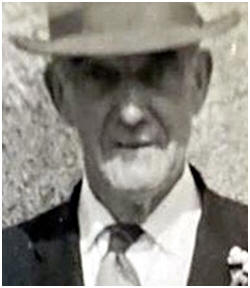
Thomas Tinneny was born on Goladuff on May 26, 1894. He was the
son of
Bernard Tinneny and Margaret McEntyre.
The Rev. Hugh O'Neill baptized him in Saint Mary's Church, Newtownbutler on May
27, 1894. His godparents were Patrick and Catherine Reilly.
Tommy
was raised in the 1 room house of his grandmother on Goladuff along with her,
his parents and 3 siblings. He attended Wattlebridge School. He could only
attend school six out of twelve months of the year because of the annual
flooding of Quivvy lough. The flooding in effect caused Goladuff to become an
island with no land route to the schoolhouse at Wattlebridge. Wattlebridge.
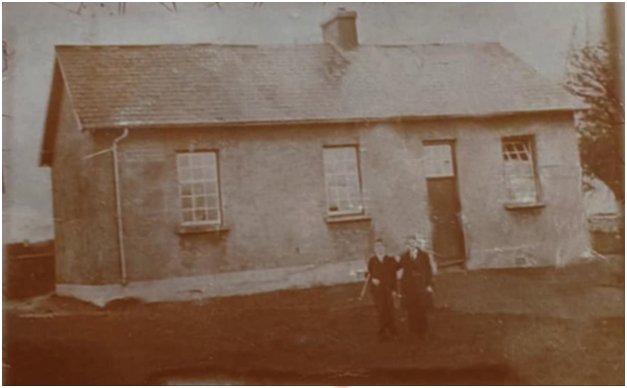
Wattlebridge School
from the pamphlet “Wattlebridge School 1895 - 1972.“ Courtesy of Linda
Connolly.
Thomas was included in The 1901 Census of Ireland (March 31,
1931) living in the home of his 80 year old grandmother, his parents and
siblings.
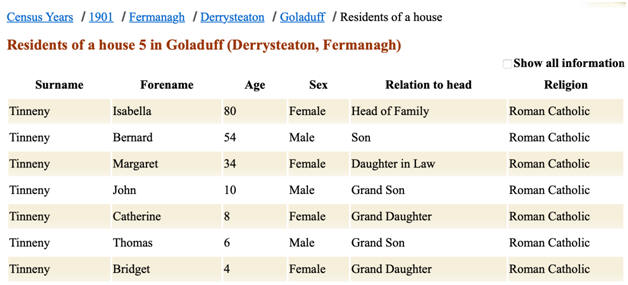
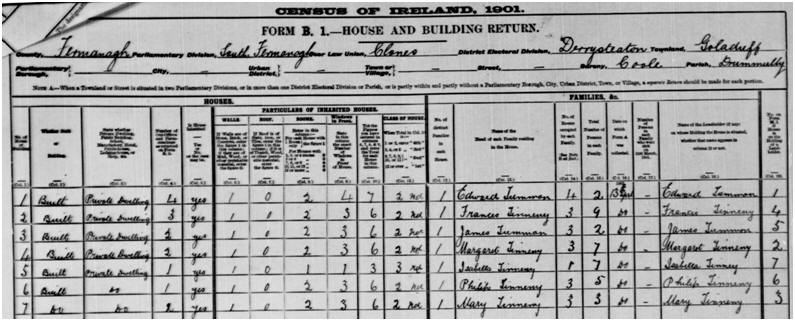
Form B of the 1901 Census
shows Tommy’s grandmother’s house as number 5 on the form, that it was
constructed of stone and that the roof was made of thatch or wood, had one room
and I out building. The form also indicates that the home like all the others on
the form was among the holdings of a land lord.
Notes:
1.
The landlord was John Creighton.
2.
Also listed on the form at number 4 is the house of Margaret
Tinneny the mother of
Patrick “Yankee Pat” Tinneny
and widow of John “Big John” Tinneny. Patrick was born in that house and as a
young man went to Greenock, Scotland to work, married Margaret Malloy in
Greenock and had a family there. He and his family immigrated to Philadelphia in
the early 1900s.
When Tommy was 26 years old his father died of
cystitis and bequeathed Tommy 15 pounds 6 shillings.
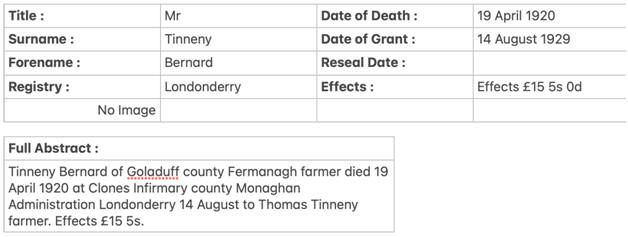 |
|
Source:
British Probate and Wills record. |
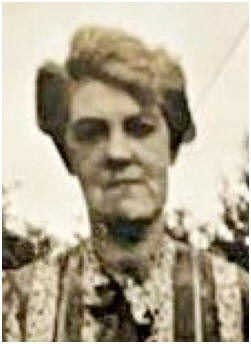
In
November 1925 Tommy married Mary Ellen Tracy at Saint Mary's Church in
Newtownbutler. Mary Ellen was born on August 15, 1898. Her parents were Daniel
Tracy and Mary Maguire. Mary Ellen was raised at the home of her parents in
Killyraw, Newtownbutler.
Photo
courtesy of Lorraine McKenna Pearson.
According to Francie Tummin of
Goladuff, Tommy had 2 or 3 cows in the field near his house on Goladuff. One day
Tommy went into the field and found one of his cows dead. Several days later he
went into the field and found a second cow dead. That day he pronounced "That's
the last four footed animal I'll own." He sold the farm on the hill to Kate
Tinneny and her niece Alice and moved to Newtownbutler.
Photos
of the Tinneny home in Cullion 1950s. Courtesy of Lorraine McKenna Pearson.
Tommy and Mary Ellen lived at their home in Cullion,
Newtownbutler with their daughter Margaret ”Peggy” who was born February 26,
1926. When Peggy married, she, her husband Thomas
McKenna and their children
lived in the home at Cullion with her parents.
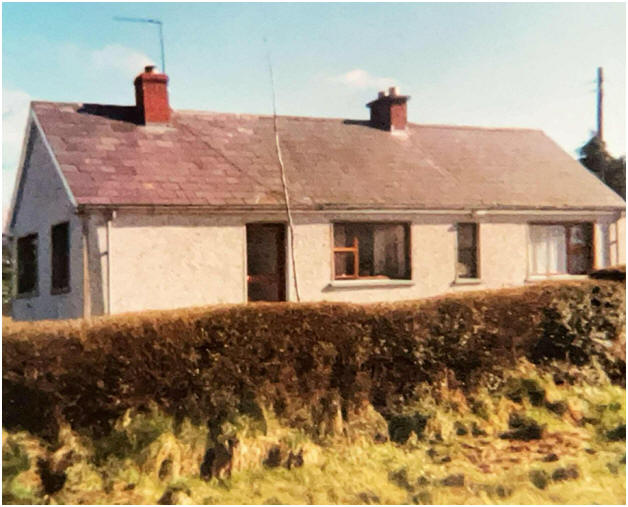
Photo of the home in the 1990s showing renovation and
structural updates. Courtesy of Lorraine McKenna Pearson.
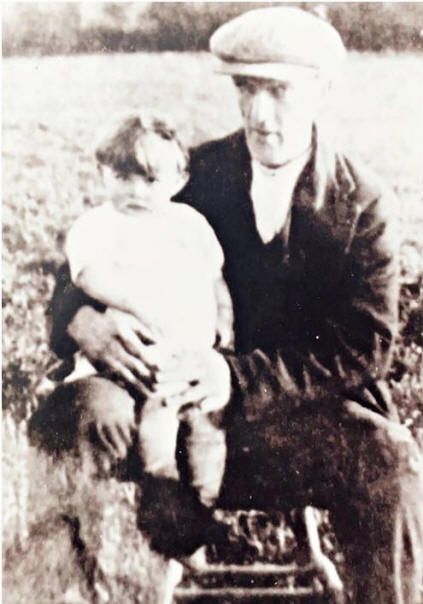
Tommy
with daughter Peggy.
Courtesy of Lorraine McKenna Pearson.
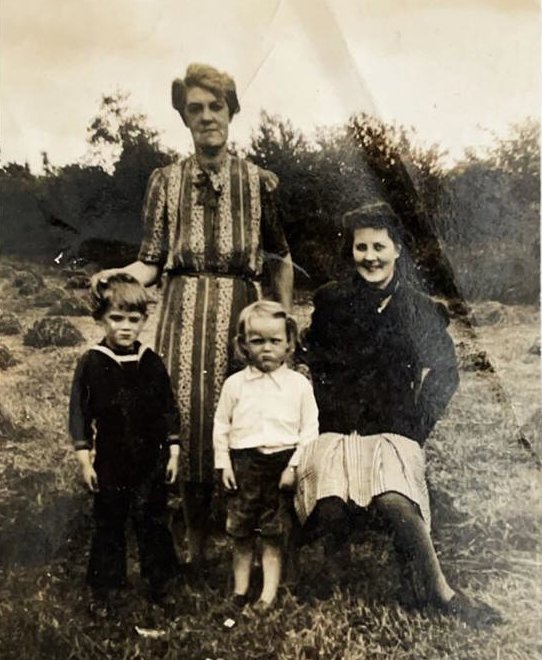
Mary Ellen standing, with her niece and grandsons
Patrick “Patsy” and Fergus McKenna. Courtesy of Lorraine McKenna Pearson.
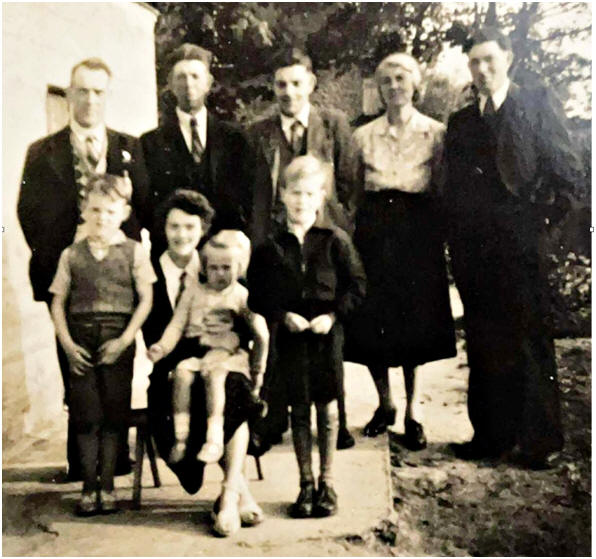
|
Standing: Left end Tommy, with Mary Ellen and her
three brothers. |
|
Seated: Alice Brady with Fergus McKenna on her lap
and his brother Patsy standing to her right and a neighbor (Woods)
son on her left. Courtesy of Lorraine McKenna Pearson.
|
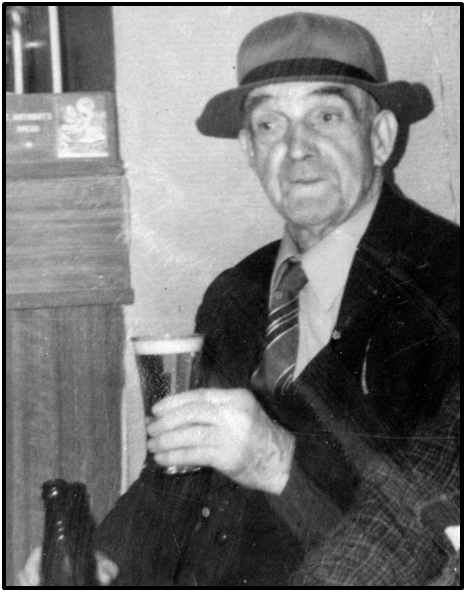
Photo
Tommy Tinneny. Courtesy of
Michael McPhilips.
Tommy enjoyed traditional Irish songs and sang at local
gatherings and in some of the pubs around Newtownbutler. He appeared on
local radio Sunday afternoons singing traditional Irish songs. Betty Tinneny,
who was raised in Roslea, County Fermanagh, remembered hearing Tommy singing on
the radio during these Sunday afternoon shows. At the time she didn't know that
he was a relative and that her roots went back to Goladuff where Tommy was born.
Tommy also sang, according to his daughter Peggy, in all the concerts that were
conducted in Saint Mary's Parish Hall in Newtownbutler.
In 1971 Tommy was the only person around Fermanagh who remembered
a song about Father Clarke. Father Clarke was the parish priest of Saint Mary's
and a folk hero of sorts in the area. Tommy provided the words of the song to
Mr. John Joe McCusker for publication in the book he wrote about Cannon Maguire
and the Newtownbutler area.
Father
Clarke's Song
|
Come on all you gallant Irishmen attend both one and
all; |
|
I hope you pay attention since on you I do call. |
|
It's of a simple eulogy onto a martyr due, |
|
For a Newtownbutler clergyman is always just and
true. |
| |
|
A parish priest of no small zeal was forced by law to
flee, |
|
and leave his flock and parish and cross the raging
sea. |
|
Like Mary's flight to Egypt sure he was forced to go |
|
Through rolling seas and boundless waves where stormy
winds do blow. |
| |
|
But civil pardon was obtained all by a worthy man, |
|
Who for every cause of Prudence, right firmly did
stand. |
|
May he arise on the last day some happy visions see. |
|
With Father Clarke by his right-hand his advocate to
be. |
| |
|
Archbishop John and Fr. Stark could not refrain from
tears, |
|
When they learned the sudden exit of one of them so
dear. |
|
Some hundreds of our Irishmen marched with him to the
quay, |
|
Where the Albert Steamboat there did wait to take him
far away. |
| |
|
Her solid engines did their work revolving night and
day, |
|
With Father Clarke on board of her she split the
angry spray. |
|
When he arrived back home in Ireland a welcome he
received |
|
From the clergy and the laity as you can plainly see. |
| |
|
With ecstasy they greeted him on his returning home, |
|
For they knew he was a pillar in the Holy Church of
Rome. |
|
The joy-bells of our chapel harmoniously did sound, |
|
To see him dressed in Christ's blessed robes all in
his seamless gown. |
| |
|
The Chalice of Salvation with his blessed hands did
raise, |
|
And that spotless Host he left again once more before
their eyes. |
|
Your sons of brave Hibernia for ever should be true, |
|
To the Reverend Mr. Thornhill for what he helped to
do. |
| |
|
Here's health unto the men who won, and all Crom's
loyal men, |
|
Who bravely fight to make our land a nation once
again. |
|
Hurrah for noble Erne who truly backed the cause; |
|
Three cheers for valiant Goodwin, is worthy of
applause. |
|
For his Religious Pastor he exercised his skill. |
|
And brought him back unto his flock from far beyond
the hills. |
|
|
|
Thomas Tinneny |
|
Cullion, Newtownbutler |
In
the nineteen-eighties the BBC (British Broadcasting Company) sent a team of
people to interview Tommy and to tape many of the old Irish folk songs that he
sang. The tapes were then placed in the Ulster Folk Museum's Cultural Center
outside Belfast.
Listening to some of those tapes in 1996, Rich Tinneny heard a
recording of
Tommy
singing songs in a strong and clear voice. One of them was about the
Titanic. The Titanic song had about forty versus and on the recording Tommy
prefaced singing it with a saying that he was noted for “It's as long as from
Saint Paddy's day to America."
Musical
Traditions Records' first CD release of 2004: The Hardy
Sons of Dan
(MTCD329-0),
includes a song by Tommy titled “The Clones Murders”. Keith Summers recorded
Tommy singing the song in Tommy’s home in Cullion, Newtownbutler 9.10.80 and
included the following comments about Tommy and making the recording:
“Tommy Tinneny was in all ways the elder statesman of the local
Newtownbutler singing crew. To him, Paddy Halpin was "young Halpin".
Tommy was well into his 90s when I recorded him singing.
I'd been introduced to him by his daughter and he is one of
the few instances where I recorded without assistance and made a cold call
to a singer in Fermanagh.
In addition to The Clones Murder, Tom had a version of The
Titanic, the ballad of the shipwreck, that lasted well over seven minutes
and Tom was a very, very good singer.
Because of his age I did not record him at any great length
and he died shortly after making these recordings.”
|
The Clones Murder |
|
By |
|
Tom
Tinneny |
| |
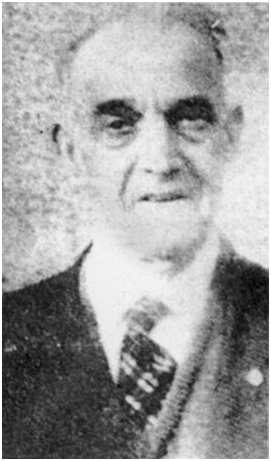 |
|
|
|
Tom Tinneny |
|
|
You feeling-hearted Christians now
I hope youse will draw near,
And listen to these mournful lines
I mean to let youse hear.
Concerning poor John Flanagan,
His loss we do deplore,
Since he was cruelly murdered
We shall see his face no more.
He lived in the County Monaghan,
Not far from Clones town.
He came into the market,
Cashed a cheque for fifty pounds.
He little thought that morning,
As he left his father's door,
That he would be cruelly murdered
And we'd see his face no more.
For eight long months his body
Lay concealed in Clones town.
No word of him then could be got
When searched for all around.
Two men were carting dung away
And they saw a dreadful sight
The body they discovered there,
Which brought the crime to light.
The police came, and the dung was searched
And his body there was found.
He was brought out upon the yard,
But his body it was laid down.
The hardest hearted would relent,
It was dismal for to see.
But we hope his soul's in heaven above
Shine for all eternity.
He was an honest young man,
As all the people know.
He little thought in Clones town
There lurked a cruel foe.
It shook the County Monaghan
When they heard the news was true.
That he was cruelly murdered
And his age but twenty-two.
But suspicion rests upon a man
Who in Armagh gaol does lie.
For God will do what's just and true,
He rules the earth and sky.
The secrets of the sinner's heart
Is known to him each day.
And he who killed John Flanagan
With revengence must repay.
Our Lord Himself He gave command,
He says, "Thou shalt not kill."
Cain was marked out without a doubt
When Abel's blood did spill.
And on the general judgement day
None will escape their doom,
When earth and sea gives up its dead
From every silent tomb.
God comfort his poor parents,
Also his sisters dear.
For since they've heard of this dreadful crime
Sure, they have shed many a tear.
But we hope they will be united
On that bright and happy shore,
And meet again in Heaven where
They're ne'er to part no more.
Note:
See Robin Morton's “Come
Day Go Day” p.163
for description of this real event of 1903.
There, the song is called Fee
and Flannigan and
it was sung by John Maguire, in Tonaydrumallard, Co Fermanagh.
Clones is only a few miles from Newtownbutler, but is actually
just over the border, in Co Monaghan, and is also the setting for a well-known
fictional murder recounted in Patrick McCabe's The
Butcher Boy.
In
addition to singing songs, Tommy also wrote songs one of which was titled "The
Bridge Into Galloon." Following are the words to that song, which were
transcribed by our cousin Fidelma Tinneny of Quivvy from an audio tape of Tommy
singing the words.
|
The
Bridge into Galloon |
|
By |
|
Tommy Tinneny |
| |
|
Come on you gallant Irish men |
|
I'll tell both one and all |
|
I hope you'll pay attention |
|
Since on you I do call |
|
In place of a few men I speak |
|
You'll hear their names quite soon |
|
Fought a battle for that bridge |
|
Across on to Galloon |
| |
|
James Goodwin James McCaffery |
|
These heroes brave and bold |
|
Have fought a long determined fight |
|
A cause for to uphold |
|
For four long years they laboured hard |
|
To have a cot no more |
|
So now we're going to get the bridge |
|
Across lough Erin's shore. |
| |
|
James Goodwin was the first to write |
|
To Creight to come to pay |
|
To see the hardships they had got |
|
When crossing at the quay |
|
Some others came by foot and car |
|
That day to Derrydoon |
|
An English Lordship was conveyed |
|
Across on to Gallon |
| |
|
When
he arrived upon the hill |
|
To take a look once more |
|
He looked down on to Crom Domain |
|
That's on lough Erne's shore |
|
He then asked James McCaffery |
|
Where the road would need to go |
|
Just around the back of Kevneagh |
|
The best way that I know |
| |
|
So it's home they went with merry hearts |
|
And knew the day had come |
|
When hardships they were near an end |
|
And happiness begun |
|
When every man could give three cheers |
|
When standing on the quay |
|
And bid goodbye to Johnny's cot |
|
We'll never need them more |
| |
|
So now the bridge has started |
|
For myself I've got a job |
|
The contractor's name is McManus |
|
And the gaffer's name is Bob |
|
He is a nice old gentleman |
|
Is all that I can say |
|
But all the wages we have got |
|
Is four and ten a day |
| |
|
And when the bridge is finished |
|
Lord Creight will return to see |
|
The splendid architecture and the fight |
|
Of our own J. D. |
|
In case of distillation |
|
We'll have a man to speak |
|
And instead of spending months in jail |
|
We'll only get a week. |
| |
|
Now to conclude and make an end |
|
My pen I will lay down |
|
As I have sung the praises of |
|
Those fellows all renowned |
|
Not forgetting Lord James Cooper |
|
Or the noble work he'd done |
|
Assisted by J. D. McGrath |
|
The victory he won. |
| |
|
Tommy Tinneny |
|
of Goladuff and Cullion |
|
|
Reproduced by permission of his daughter Peggy Tinneny
McKenna.
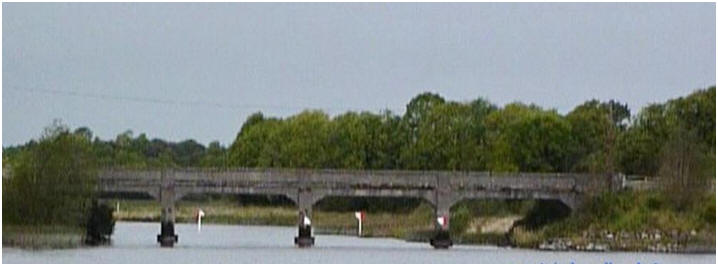
View of the Galloon Bridge from the water. Photo credit Captan’s
Handbook@.
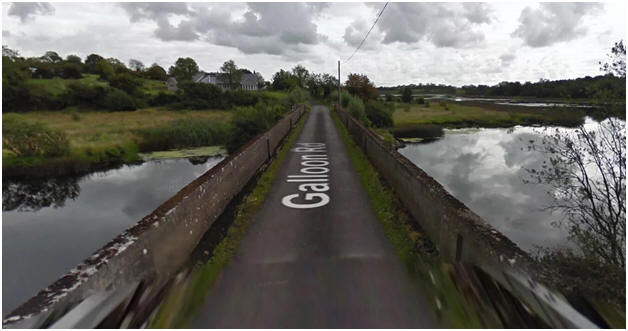
|
The Galloon Bridge, Newtownbutler,
County Fermanagh. Google Image. |
The following article about Tommy appeared in the publication Comhaltas
Ceoltoiri Eireann -- Fermanagh Fleadh Cheoil 1997. It was published on the
occasion of the Fleadh held the 13th, 14th and 15th of June 1997 held in
Newtownbutler.
The
Late Thomas Tinneny, of Cullion, Newtownbutler
Newtownbutler has been renowned for traditional singers over
the past years, and one of them now deceased was Tommy Tinneny. He lived to
the fine age of 86 years, and until the end could be heard to sing many of
his songs. He learnt many of his ballads from his mother, Mrs. Margaret
Tinneny (nee McEntyre, and his Uncle Benny McEntyre, (Big Benny), as those
who lived in Derrykerrib knew him.
Tommy was born and reared on Goladuff, some four or five
miles from Newtownbutler. Throughout his life he worked locally. One of his
jobs was the building of Galoon Bridge in 1928 - 1929. Later on he composed
and sang "The Bridge into Galoon: and sang it to the Air of Father Clark,
the Priest who was banished from Newtownbutler for marrying a Catholic and a
Non-Catholic. He also sang the ballad of "The Clones Murder, and Fee and
Flannagan". His collection of songs included comical as well as the local
stories and folklore of the era of the early part of the century. His songs
have been collected and recorded by the Ulster Folk Museum, outside Belfast,
and also by an American Girl, who used them to help with her finals at
University in the United States of America.
|
Peggy Tinneny |
|
Newtownbutler |
| Back Row: Fergus
McKenna, Patsy McKenna |
| Front Row: Tommy Tinneny,
Chrissie McManus,Thomas McKenna, Teresa Kennedy McKenna. |
|
Courtesy of
Lorraine McKenna Pearson. |
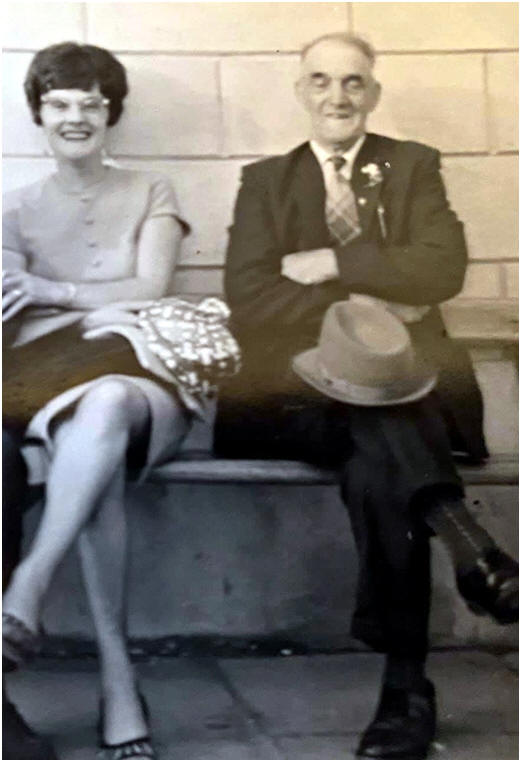
Tommy with daughter Peggy. From a
photo by Amanda
Sheridan O’Keefe.
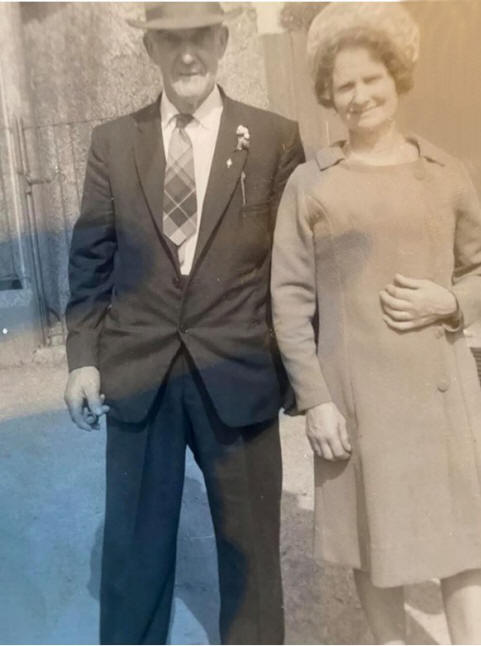
Tommy with family friend
Margaret Donnegan of Kiilnakirk. Courtesy of Amanda
Sheridan O’Keefe.
Mary
Ellen died in the family home at Cullion March 28,1958. Tommy died at Cullion
January 23,1981. They were both buried in the family plot in the churchyard of
Saint Mary's Church in Newtownbutler.
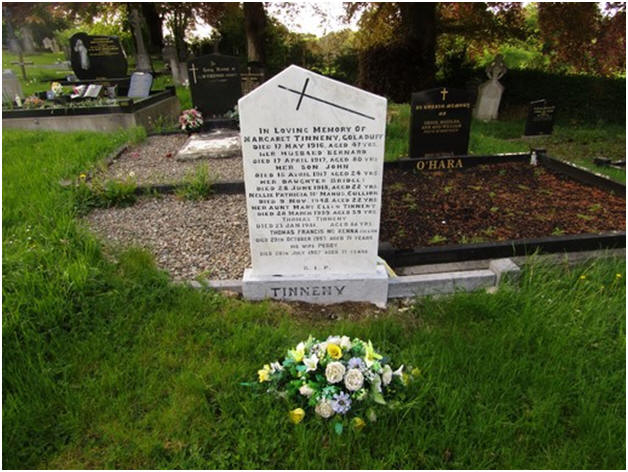
The
photo of the grave and list are from Irishgraveyards.ie website.
Following are the names and dates of others buried in this Tinneny grave along
with Tommy:
|
Thomas F. McKenna from Goladuff died October 1993
aged 71 |
|
Bridget Tinneny from Goladuff died June 1918 aged 22 |
|
Peggy McKenna from Goladuff died July 1997 aged 71 |
|
Mary E. Tinneny from Goladuff died March 1959 aged 55 |
|
Nellie P. McManus from Goladuff died November 1948
aged 22 |
|
Thomas Tinneny from Goladuff died January 1981 aged
86 |
|
Margaret Tinneny from Goladuff died May 1916 aged 47 |
|
Bernard Tinneny from Goladuff died April 1917 aged 86 |
|
John Tinneny from Goladuff died April 1917 aged 24 |
| |
Tommy’s
descendants include Brady, Keenan, McCusker, Bannon, McKenna, Pearson,
Crampton, Cooke, Sames and Lawrence.
 |